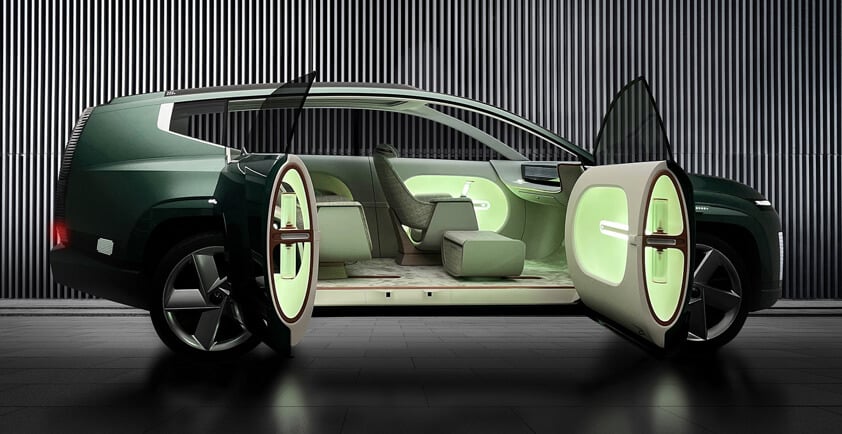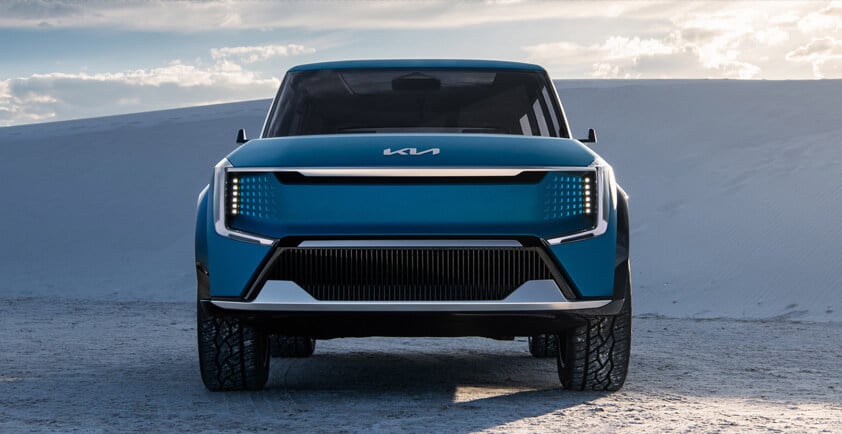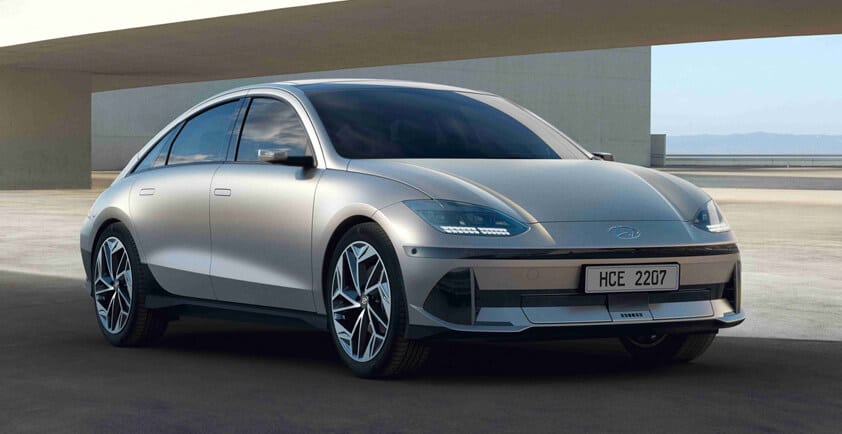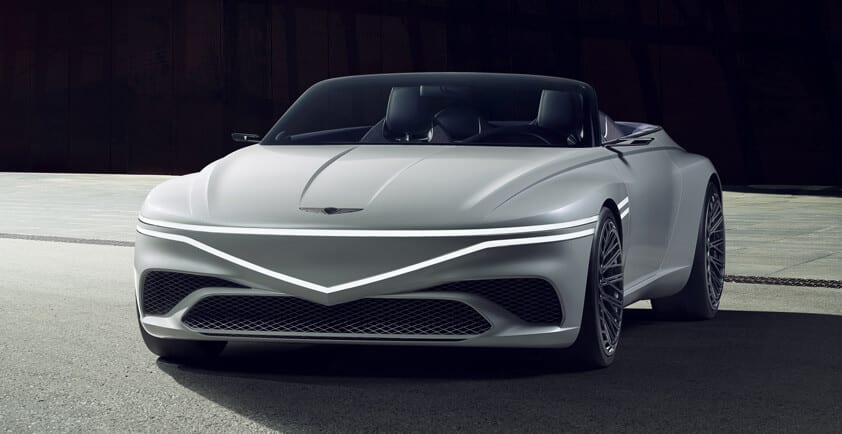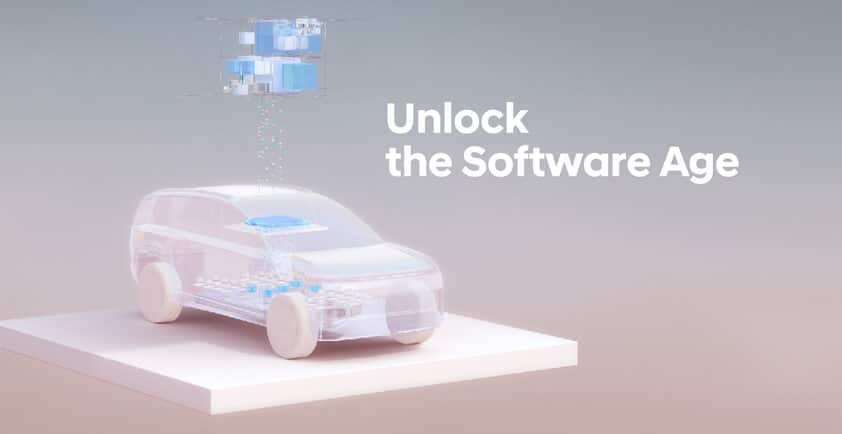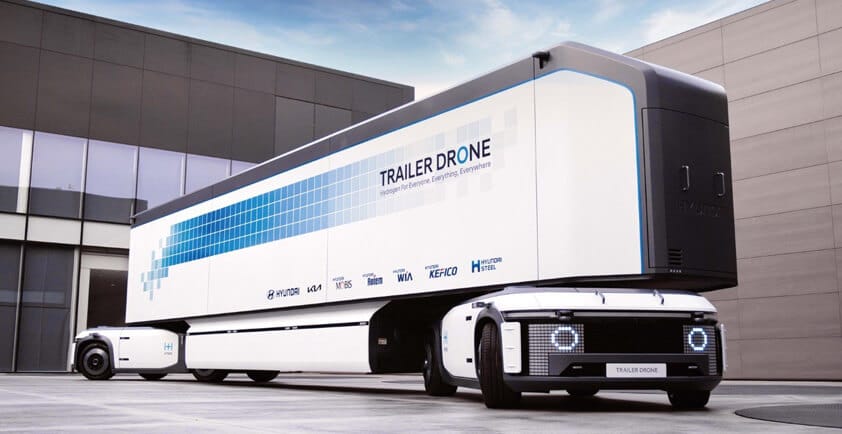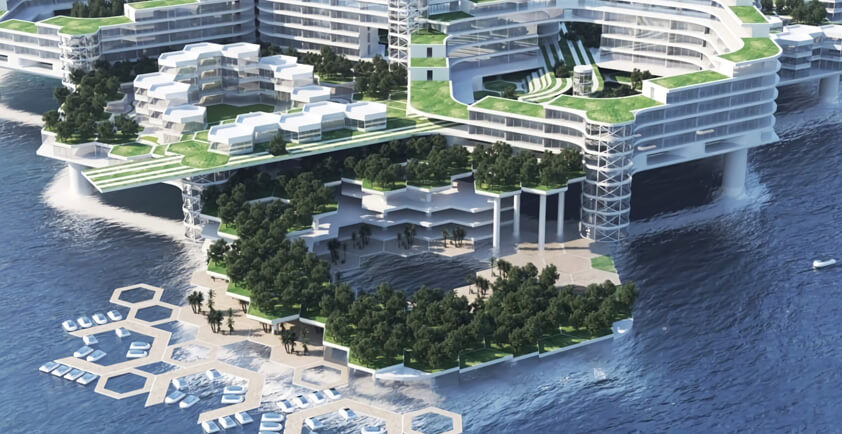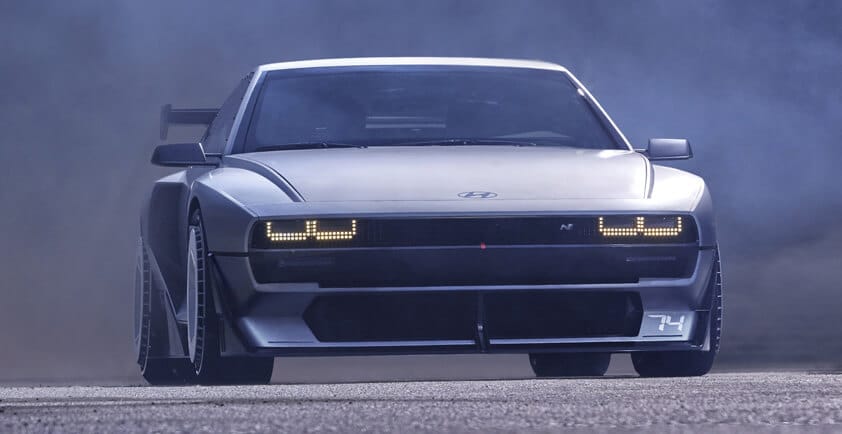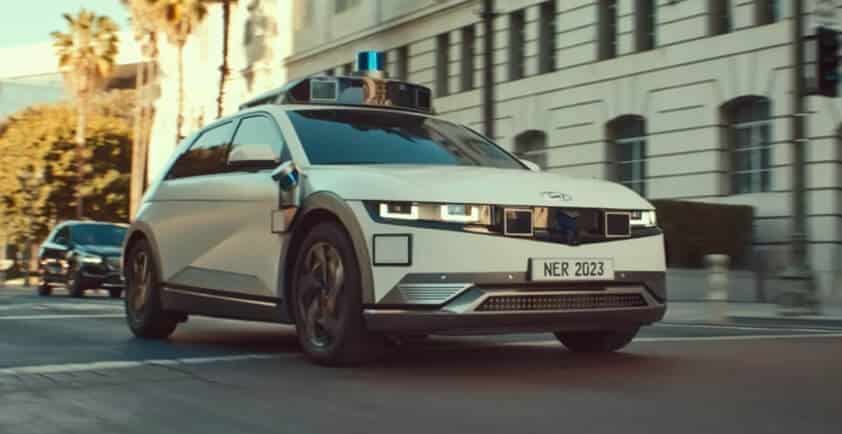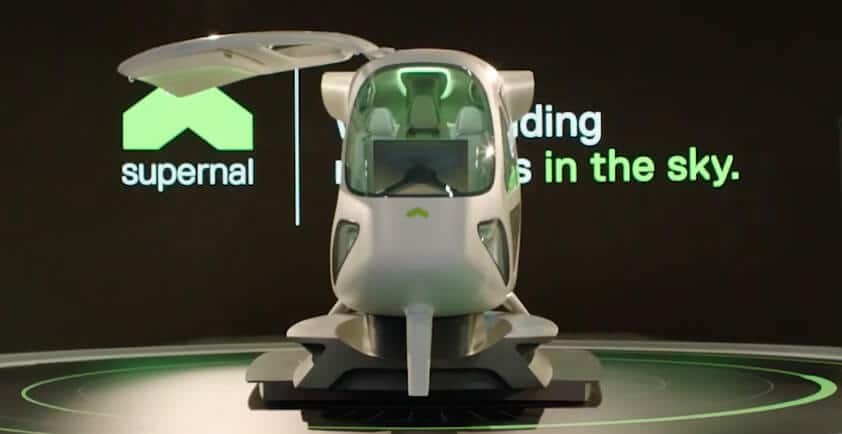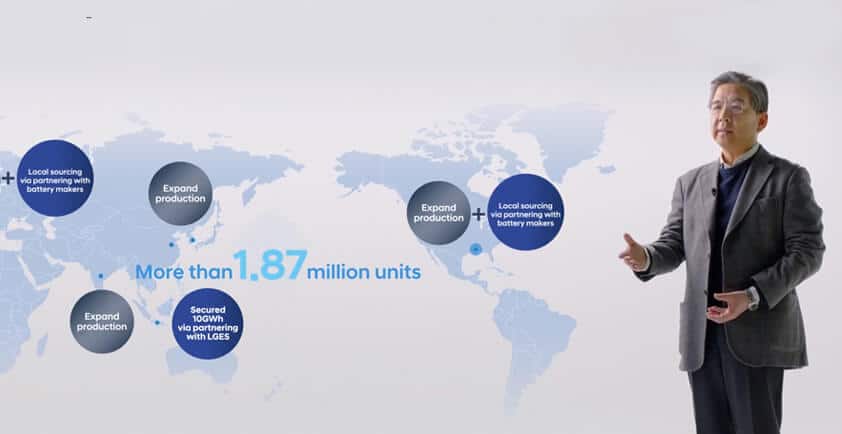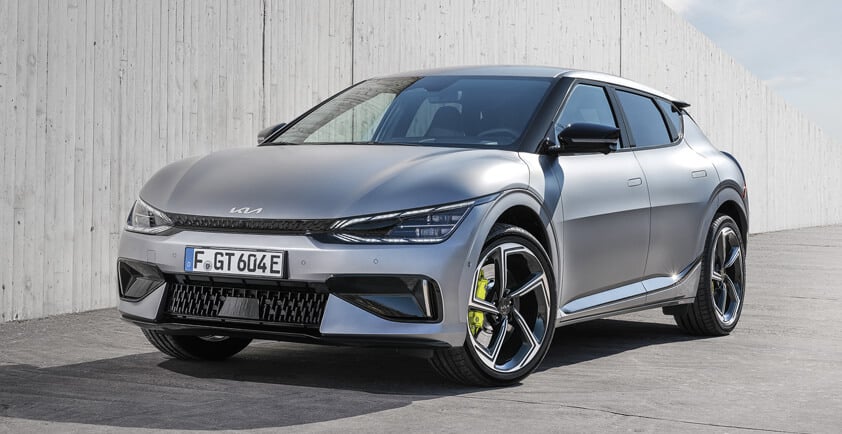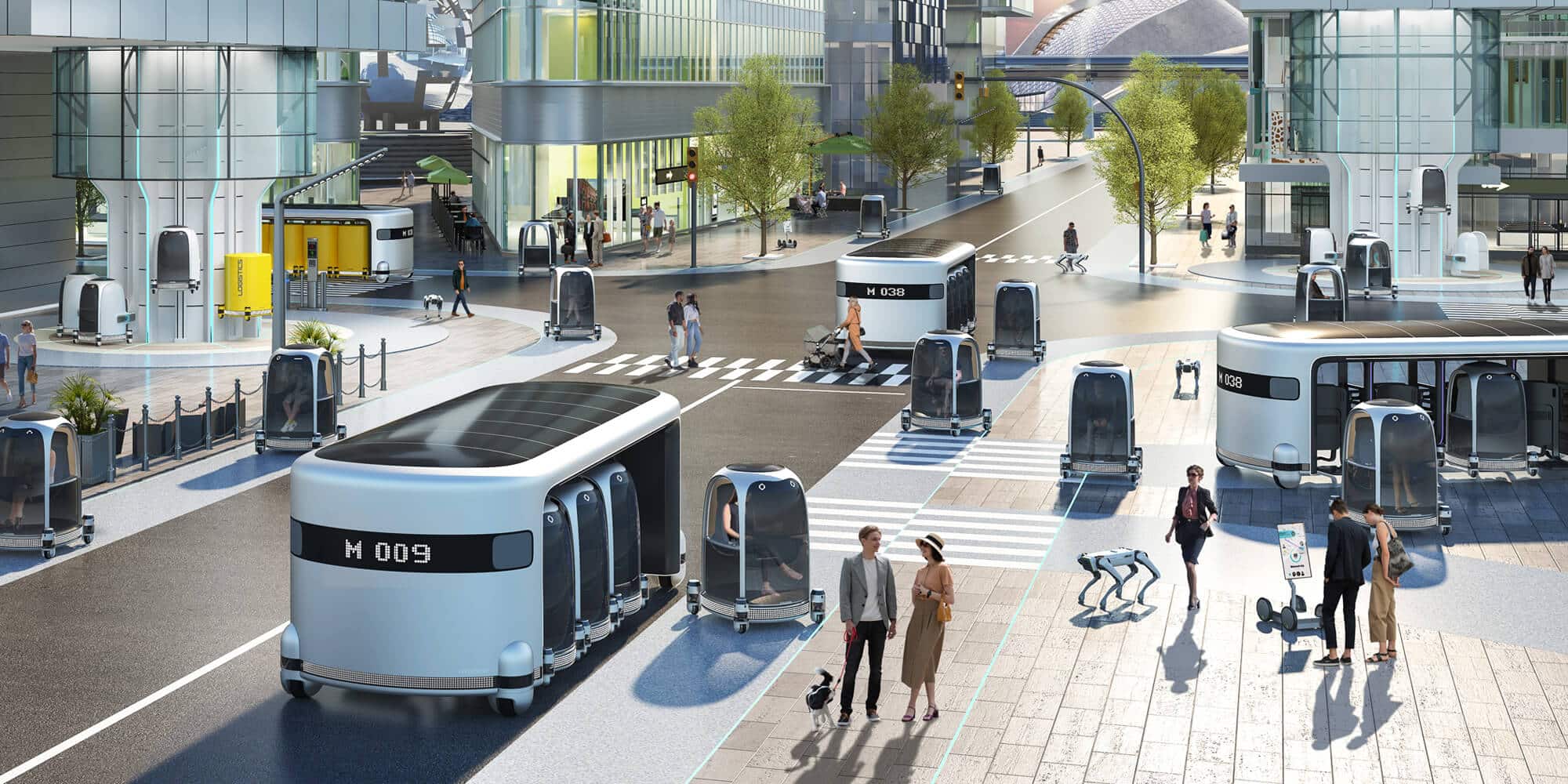
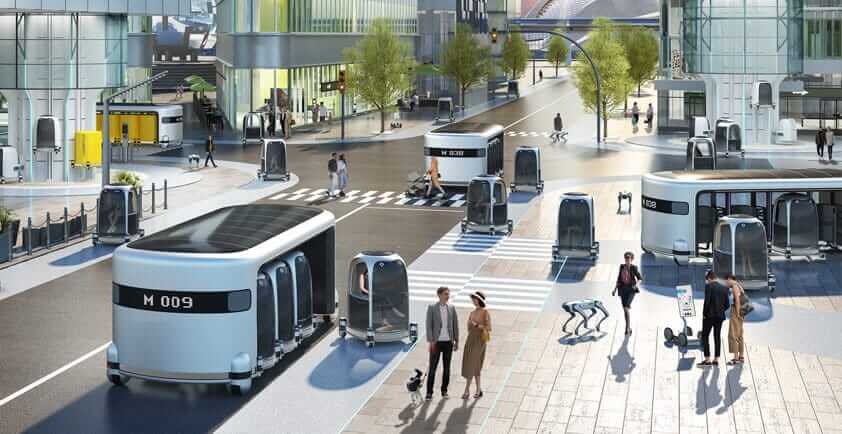
HYUNDAI MOTOR UNVEILS INNOVATIVE PLUG & DRIVE ROBOTIC MODULE TO ENABLE UNLIMITED MOBILITY OF THINGS AT CES 2022
>> New Mobility of Things (MoT) concept to enable the movement of traditionally inanimate objects through the company’s robotics technology
>> Plug & Drive (PnD) and Drive & Lift (DnL) modules to provide all-in-one mobility solutions as parts of an unlimited MoT ecosystem
>> PnD module to provide mobility to everything from small objects to community spaces with infinite flexibility and scalability
>> DnL module with an eccentric wheel mechanism to extend the operation of robots to both indoor and outdoor locations
Hyundai Motor Company today revealed its Plug & Drive (PnD) modular platform that enables mobility of traditionally inanimate things, from small objects to large community spaces, at CES 2022.
At the event, the leaders of Hyundai Motor and Boston Dynamics presented a shared vision for robotics in both the real world and metaverse under the main theme of ‘Expanding Human Reach’. Hyundai Motor also revealed its plans for creating an advanced mobility experience with an unlimited Mobility of Things (MoT) ecosystem, and showcased a range of robots and robotic concepts.
"We are directing all our robotics engineering and creative efforts toward building the unlimited Mobility of Things ecosystem. The goal is for robotics to enable all kinds of personal mobility, connected to communicate, move and perform tasks autonomously."
Dong Jin Hyun - Vice President and Head of Robotics Lab of Hyundai Motor Group
Allowing objects to move autonomously with PnD
The PnD modular platform is an all-in-one mobility solution that combines intelligent steering, braking, in-wheel electric drive and suspension hardware. The single wheel unit uses a steering actuator for infinite wheel rotation, meaning it can turn 360 degrees, which enables holonomic movement, like a figure skater. LiDAR and camera sensors allow a PnD-enabled object to move autonomously.
PnD modules can be attached to anything from tables to containers for expandable mobility. Users can select various drive configurations and platform sizes based on their requirements.
"The PnD Module is adaptive and expandable to match human needs. Because in the world to come, you won’t move your things — they will move around you. PnD makes normally inanimate objects mobile. It’s this ability that makes changing practically any space possible. It’s a way to configure spaces on demand."
Dong Jin Hyun - Vice President and Head of Robotics Lab of Hyundai Motor Group
Hyun went on to explain that PnD can be useful in office sharing, which has become a billion-dollar industry. PnD allows teams – even entire companies – to modify and use work space on demand, making the purpose-built space, or PBS concept, possible. One can transform an entire business model with PnD modules, or even do away with fixed locations altogether.
PnD’s driving flexibility also can individualize public transportation to meet very specific, individual needs, such as a personal mobility module that attaches to a mother shuttle for most of its journey but can detach for the last mile to take the occupant directly to their final destination.
At CES 2022, Hyundai Motor exhibited a total of four application concept models using a PnD modular platform, including Personal Mobility, Service Mobility, Logistics Mobility and L7 – all of which fit into an unlimited MoT ecosystem.
The Personal Mobility concept is a platform-based application equipped with four 5.5-inch PnD modules. Measuring 133-cm wide by 125-cm long by 188.5-cm high, this Purpose-Built Vehicle (PBV) provides last-mile mobility for a single passenger. It is configured to use space efficiently by applying a rotary opening and closing method, and free operation is possible with a smart joystick installed on the right side of the seat without needing a steering wheel or pedal.
The Service Mobility and Logistic Mobility concepts use the same platform, measuring 130-cm wide by 110-cm long and 180-cm high, with storage space that opens and closes like a drawer. Service Mobility can be used for diverse applications, such as transporting customers’ luggage in hotels, and Logistics Mobility can be used for transporting goods from warehouses.
The L7 concept provides extreme mobility with a 12-inch enlarged PnD module. Similar to Personal Mobility, the seat rotates so that the passenger can get on and off easily, and it can be freely operated with a joystick.
Extending operating range of robots to outdoor locations with MobED
Also at CES 2022, Hyundai exhibited the MobED (Mobile Eccentric Droid) small mobility platform with the Drive & Lift (DnL) module, an all-in-one robotics solution based on an eccentric wheel mechanism that combines the drive, steering and braking systems into one structure. With DnL mounted on each wheel, MobED can lift the platform up and down, so the body can stay level as the MobED traverses uneven terrain or low barriers such as steps or speed bumps.
Designed for full versatility and modularity, MobED can be utilized for various applications, depending on the mounted device and can be extended to both manned and unmanned system variants. Based on its outstanding maneuverability, the platform can also be used for service robots that can operate both indoors and outdoors.
MobED measures 60-cm wide by 67-cm long by 33-cm high, and weighs 50 kg, with a battery capacity of 2 kWh. With the 12-inch tires applied, its maximum speed is 30 km/h. Hyundai Motor also exhibited a guide application concept of MobED equipped with a monitor for drawing the attention of people, such as visitors at a public attraction.
Hyundai Motor is also preparing to use DnL modules for diverse applications, such as guide and delivery, as it believes that the module can extend the operating range of the robot to outdoor locations.
